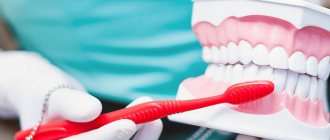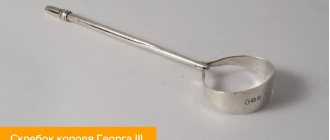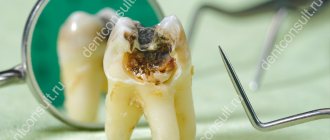Long gone are the days when everyone took calcium gluconate for strong teeth. Science moves forward, new chemical compounds are discovered, experiments are carried out with already familiar ones - in general, new interesting and useful information constantly appears. Including information about vitamins and minerals that have a positive effect on dental health.
Buying good vitamins in Moscow is not a problem now, however, this does not reduce the number of questions. For example, is it better to prefer single drugs or complex ones, how to take them - before or after meals; Which vitamins should an adult buy, and which ones are suitable for very young children?
All these questions will be answered by doctors and practicing dentists at one of the leading clinics in the capital.
Alphabet Classic
Regular plaque removal at the dentist's office is important. Pathological deposits are easier and faster to remove in a soft state, without waiting for them to harden. This will prevent disease of the gum tissue and crowns.
A complex of three types of tablets: calcium, antioxidants, iron has a positive effect on the oral cavity. The tablets are taken daily, one from each group. The drug has a positive effect not only on the oral cavity, but on the entire body. Vitamin balance must be maintained at all times. The Alphabet includes 13 vitamins and 10 minerals.
B vitamins
Riboflavin (B2), niacin (B3), cyanocobalamin (B12) and other vitamins of this group are involved in many redox processes. They maintain the health of the oral microflora and prevent the development of dysbacteriosis; help fight gingivitis and periodontitis.
The main signs and consequences of B vitamin deficiency:
- inflammatory-dystrophic changes in the gums;
- the appearance of ulcers and wounds in the mouth;
- bad breath.
Foods rich in B vitamins:
- almonds, walnuts, as well as other nuts and seeds;
- cereals;
- whole wheat pasta;
- leafy vegetables;
- dairy products, cheese;
- meat;
- oranges, lemons;
- carrots, etc.
It is important that all vitamins of this group are present in the diet, especially B12, B6, B3, B2 and B1.
Vitamin and mineral "Asepta"
This complex is needed to balance the amount of nutrients. After all, nutrition does not always fully provide the body with the necessary substances. Today you can buy ready-made complexes in pharmacies. The drug "Asepta" strengthens the gums and chewing organs. It consists of the following components: A, C, B3, B9, B6 and D3. An additional substance is green tea extract. It prevents inflammation, has an antiseptic effect, and prevents the appearance of caries and bleeding gums.
Usage rate
Throughout a person’s life, the required amount of calcium changes:
- Infants under 6 months need 200 mg daily.
- Children from 7 months to one year need 260 mg per day.
- Between the ages of one and three years, a child needs 700 mg.
- Children from 4 to 8 years old need 1000 mg of the macronutrient daily.
- A maximum dose of 1300 mg/day is needed for ages 9-18 years.
- Women aged 19 to 50 years need 1000 mg of calcium per day.
- Men aged 19 to 70 years need 1000 mg per day.
- Women aged 51 years and older need 1200 mg daily.
- Men 71 years of age and older require 1,200 mg of calcium per day.
The greatest amount of calcium is needed by a person in childhood and adolescence, when permanent teeth appear. This is due to the fact that the macroelement accumulates in the teeth only during their formation. And the further condition of the teeth depends on how much this supply is replenished. Unfortunately, it will not be possible to influence the health of molars by consuming calcium-containing foods.
Vitrum Calcium
Vitamins for teeth for adults and children are an important component of good health. The child must first receive D and A in order for his chewing organs to fully develop. With a deficiency of these substances, the units become distorted and stomatitis appears. If the baby cannot consume enough dairy products, eggs, fish liver, bell peppers, greens, carrots, butter, cabbage, the baby is prescribed vitamin and mineral complexes. When choosing a drug for teenagers, pay attention to the proportion of calcium, phosphorus, magnesium, zinc, iron, and copper. "Vitrum Calcium" is approved for use from 12 years of age. A special feature of the complex is strengthening the structure of hard tissues, preventing the crumbling of crowns and the development of caries.
Experts' opinion
Clinical studies of Asepta products conducted at the Ryazan State Medical University of the Ministry of Health and Social Development of Russia allowed the following conclusions to be drawn:
- All patients, after using Asepta line products, noted a decrease in complaints of discomfort in the oral cavity 1-2 days after use.
- On the 7th day, when examining patients, a decrease in hyperemia and swelling of the gums is noted, but bleeding persists upon probing.
- On the 14th day of using the products, upon examination, a significant decrease in hyperemia and swelling of the gums was recorded.
Improved dynamics of indicators allows us to recommend the Asepta line of products for the local treatment of inflammatory diseases of the oral cavity.
Sources:
- Clinical experience in using the Asepta series of products Fuchs Elena Ivanovna Assistant of the Department of Therapeutic and Pediatric Dentistry State Budgetary Educational Institution of Higher Professional Education Ryazan State Medical University named after Academician I.P. Pavlova of the Ministry of Health and Social Development of the Russian Federation (GBOU VPO RyazSMU Ministry of Health and Social Development of Russia)
- Study of the clinical effectiveness of the use of therapeutic and prophylactic agents of the ASEPTA series in the treatment of inflammatory periodontal diseases in children and adolescents (I.V. Klimova) Irina Vladimirovna Klimova, Candidate of Medical Sciences, Associate Professor of the Department of Pediatric Dentistry, Novosibirsk State Medical University. Department of Pediatric Dentistry, Novosibirsk State Medical University.
- Study of the clinical effectiveness of treatment and prophylactic agents of the Asepta line in the treatment of inflammatory periodontal diseases (A.I. Grudyanov, I.Yu. Aleksandrovskaya, V.Yu. Korzunina) A.I. GRUDYANOV, Doctor of Medical Sciences, Prof., Head of Department I.Yu. ALEXANDROVSKAYA, Ph.D. V.Yu. KORZUNINA, asp. Department of Periodontology, Central Research Institute of Dentistry and Maxillofacial Surgery, Rosmedtekhnologii, Moscow
DentoVitus
With its help, you can strengthen the chewing organs and maintain their attractive appearance. It is rich in vitamins K, A, E, B6, C, D3. The microelements included in its composition help tissues regenerate and ensure the synthesis of their matrix. The drug is available in the form of effervescent tablets that dissolve in water. Components: A, E, B6, K, D3, C, 11 minerals, including fluorine.
- Nutrients are absorbed by the body quickly;
- enamel and dentin are well strengthened;
- The walls of the capillaries become stronger;
- blood circulation improves;
- the looseness of gum tissue decreases;
- cuts and wounds in the oral cavity heal quickly;
- mucous membranes are restored in case of mechanical damage;
VITAMINS AND MINERALS FOR YOUR TEETH HEALTH
The body receives the necessary substances from various foods. It is not always possible to diversify the menu enough to saturate all cells and tissues with valuable elements. The lack of nutrients makes the tooth and gum tissue weaker and worsens the condition of the oral cavity. Vitamins for teeth and gums are an excellent solution for people who want to maintain oral health.
A sufficient supply of valuable microelements and vitamins is the key to the normal functioning of the body. The lack of one or another component quickly affects the density of the gums and the strength of the teeth.
If you don't take timely measures, if your gums bleed, you can get a more serious illness, and bad breath can also indicate some diseases. Such seemingly small problems can even cause tooth loss. Not everyone knows that many dental diseases begin due to a lack of vitamins. In order not to subsequently experience discomfort from toothache, you need to be able to recognize which vitamin is missing, properly care for your oral cavity, eat well and take vitamins for your gums and teeth.
What vitamins are needed and beneficial for healthy teeth and gums:
Vitamin A
Vitamin A is most often associated with good vision, but it is also necessary for maintaining healthy mucous membranes covering the gums and cheeks. This vitamin makes them less susceptible to disease. It keeps tooth enamel healthy. Vitamin A promotes the production of saliva, which plays a very important role in clearing bacteria and food particles from the mouth. This organic compound is found in large quantities, as you, of course, know, in carrots. It is also abundant in other orange-colored vegetables and fruits (for example, mangoes and sweet peppers). A large amount of vitamin A is found in cabbage and spinach. More precisely, these vegetables contain a lot of beta-carotene, which is converted into vitamin A in the human body. And you should also remember about proteins (eggs, fish) - this organic compound is also present there in sufficient quantities.
Symptoms of deficiency:
- The gums begin to become inflamed, swelling and redness appear.
- Prolonged healing of wounds in the mouth.
- The enamel becomes rough.
- Teeth become loose
Vitamin B3
Vitamin B3 (niacin) is involved in many redox reactions in the human body. Its deficiency in the body can lead to mouth ulcers and bad breath. Good sources of this organic compound are fish and chicken. Vitamins B12 and B2 Due to a lack of vitamins B12 and B2 (riboflavin), ulcers may appear on the tongue, gums and soft tissues of the mouth. These vitamins prevent oral inflammation. Their deficiency leads to severe cases of gingivitis, inflammation of the gums without compromising the integrity of the periodontal junction. Vitamin B12 is found in large quantities in spinach, almonds, and whole wheat pasta. And there is a lot of vitamin B2 in meat, fish, dairy products and cheese.
Vitamin C
Vitamin C is needed to maintain healthy gum connective tissue. If there is not enough of it in the body, teeth may become loose and gums may begin to bleed. In general, in this case, the gums are seriously damaged. Did you know that scurvy, an acute gum disease, is caused by a lack of vitamin C? It should also be noted that consuming vitamin C with bioflavonoids prevents the formation of plaque around the teeth. Sources of bioflavonoids: oranges, apricots, cherries, etc. Vitamin C is rich in citrus fruits, strawberries, broccoli, bell peppers and sweet potatoes.
Symptoms of deficiency:
- Bleeding gums.
- Ulcers and wounds on the gums and in the mouth.
- Loose teeth.
- Frequent infectious diseases.
Vitamin D
Vitamin D is very important for oral health as it helps calcium to be absorbed. A lack of calcium often leads to poor dental development, gum disease and caries. Vitamin D deficiency causes burning mouth syndrome. Symptoms of this chronic disease are pain and burning in the mouth, numbness, dry mouth, and changes in taste. According to some reports, this syndrome may also be caused by a lack of vitamin B. Good sources of vitamin D: eggs, fish, milk and cod liver. You can get the entire daily requirement of this vitamin by being in the sun for 15 minutes.
Symptoms of deficiency:
- Dry mouth.
- Metallic taste.
- Caries, tooth decay
Vitamin E
Vitamin E is a very powerful antioxidant. It is useful for restoring oral tissues. It also reduces gum soreness in young children when they are teething. Vitamin E is found in sunflower seeds, nuts, leafy green vegetables, fish, avocados, and peanut butter. Calcium A sufficient amount of calcium in the human body keeps his teeth in good condition. Regular consumption of this mineral protects tooth enamel. If the body does not have enough calcium, it automatically takes it from the bones, which leads to their softening. Calcium is quickly absorbed into the blood, so it needs to be consumed in large quantities. Calcium also protects against osteoporosis, a disease that causes decreased bone density, including around the teeth. Calcium is present in dairy products, green leafy vegetables, cauliflower, legumes, soy milk, almonds, sardines, salmon, oysters.
Symptoms of deficiency:
- Dry mouth.
- Ulcers in the mouth.
- Increased tooth sensitivity
Phosphorus
Phosphorus, like calcium, is an integral part of teeth. According to scientific research, in order for calcium to be well absorbed into the body, it must be consumed together with phosphorus, which is abundant in milk, cheese, yogurt, red meat, beans, lentils, nuts and whole grains. Iron Due to insufficient iron in the body, the tongue may become inflamed and ulcers may appear in the mouth. The fact is that iron helps maintain red blood cells at the required level, thanks to which the immune system effectively fights diseases and infections. Good sources of iron: eggs, seafood, red meat, liver, bran, green leafy vegetables.
Symptoms of deficiency:
- Pain in joints and bones.
- Frequent bone fractures.
- Development of anemia.
- Subcutaneous hemorrhages.
- Periodontal disease
Potassium
Potassium is indispensable in the formation and restoration of bones, including, of course, jaw bones. It protects against osteoporosis and participates in the regulation of redox processes in the body. Potassium is necessary for blood clotting (small wounds in the mouth heal faster). There is a lot of potassium in legumes, leafy green vegetables, milk, yogurt, cheese, mushrooms, bananas, rose hips, and green tea. Fluoride In dentistry, fluoride is used to counteract the breakdown of tooth enamel. Please note that fluoride is often an ingredient in toothpastes. It is used precisely to protect tooth enamel and fight caries. Fluoride can be found not only in toothpaste, but also in some foods. For example, there is a lot of it in black tea and seafood.
Symptoms of deficiency:
- Nose and gastrointestinal bleeding.
- Bleeding gums.
- Subcutaneous hemorrhages
Iodine The trace element iodine is involved in almost all vital processes of the body. It promotes the absorption of calcium, and thus helps teeth grow and maintains them in good condition. Iodine is necessary for the proper functioning of the thyroid gland. If the functioning of the thyroid gland malfunctions, this leads to problems with metabolism. Iodine is found in seaweed, shellfish, sesame, and garlic.
Zinc
The trace element zinc, if sufficient in the body, controls the level of bacteria in the mouth. And these bacteria, naturally, if there are too many of them, destroy teeth and gum tissue. So zinc has to be closely monitored so that bacteria do not multiply too much in the mouth. Zinc is found in large quantities in red meat, cheese, oysters, legumes, mushrooms, pumpkin seeds and dark chocolate.
Magnesium The trace element magnesium protects tooth enamel from thinning and destruction and strengthens it. This trace element is found in cabbage, spinach, and dark chocolate.
Folic acid
With a lack of folic acid (vitamin B9) in the mouth, problems arise with the mucous membrane, tongue, and ulcers appear (aphthous stomatitis). Overall, this is a very important vitamin for oral health. It is found in spinach and lettuce leaves, parsley, cabbage, onions, potatoes, meat, liver, and kidneys.
Doctors and nutritionists say that the more varied a person’s diet, the lower the risk of developing a lack of nutrients.
To strengthen teeth and gums, it is necessary not only to eat well, but also to take into account that some vitamins and minerals cannot be absorbed normally without following certain rules. For example, calcium cannot be absorbed without vitamin D. Therefore, no matter how much fish you eat, if the body does not have enough vitamin D, then calcium will not be absorbed from it. Vitamin A is fully absorbed only in the company of vitamin E. Therefore, carrots are recommended to be consumed together with vegetable oil.
All kinds of oral care products are also sources of vitamins and minerals.
Dentist-therapist of the highest category
Rudkovskaya Elena Vatslavovna
Duovit
This medication belongs to the group of multivitamins that stimulates metabolism. The drug compensates for the deficiency of minerals and vitamins. The composition of the red dragee includes:
- retinol, colecalciferol;
- ascorbic acid, nicotinamide;
- calcium pantothenate, tocopherol;
- pyridoxine, riboflavin;
- thiamine, folic acid and cyanocobalamin;
Blue jelly beans include magnesium, phosphorus, manganese, calcium, iron, copper, zinc and molybdenum. If the crowns are not durable and naturally white, the dentist recommends fluoridation of the teeth. Using this effective method, the enamel is strengthened and the risk of caries is minimized. When there is enough fluoride in the body, dentin is not destroyed, crowns do not become thinner, and periodontal diseases do not develop.
How does calcium deficiency manifest itself?
An irresistible urge to chew chalk is a classic symptom of calcium deficiency. But even if you don’t think about anything like that, your body can still send appropriate signals.
The following symptoms will help diagnose a deficiency: increased bone fragility, caries, periodontitis and crumbling of teeth, muscle spasms and cramps, numbness of the limbs, a feeling of “crawling” in the fingers, back and neck pain, abnormal heart rate, difficulty concentrating.
If one or more of these symptoms is detected, you should consult a doctor: he will help you adjust the diet of the expectant mother.
The recommended daily intake of calcium for a pregnant woman is 1300 mg, and for a nursing woman - 1400 mg. The absorption of calcium and phosphorus in the intestine is facilitated by vitamin D, which is produced under the influence of sunlight and can also be obtained from food. Taking into account the peculiarities of our climate, in addition to daily walks, the doctor may prescribe medications containing this vitamin to a pregnant or nursing mother.
Read our article for useful information on preventing calcium deficiency.
Calcium D3 Nycomed
These vitamins for strengthening gums and teeth belong to combined preparations. The drug is prescribed to regulate the metabolism of phosphorus and calcium. It is well absorbed and tolerated, since D3 is chemically bound to calcium. Dosage: 1 to 2 times a day with food, sucking or chewing. After 15 days of use, the structure of enamel and bone tissue improves significantly.
General information about periodontal disease
Due to certain reasons, you may encounter a disease that affects the periodontal tissues. Destructive processes occur in the gums, causing burning and atrophy.
A feature of the disease is that it is an asymptomatic and painless process, and as a result, a visit to the doctor is postponed. As a result of periodontal disease, teeth become loose and their sensitivity increases.
What does periodontal disease look like?
- Exposure of the tooth neck and roots;
- Pale gum shade;
- Changes in enamel color;
- Itching in the gums;
- Visual increase in the gap between teeth;
- Sclerosis of bone tissue (this is especially visible in the picture).
The disease can affect only a few teeth or affect an entire row (jaw). Stages of periodontal disease:
- Initial, which is characterized by minor changes that are noticeable only to a specialist.
- The first is a slight receding of the gums, a reaction to hot and cold occurs.
- The second is a slight exposure of the neck of the teeth, the appearance of an interdental gap, and in some places cement forms instead of enamel.
- The third is characterized by receding gums by 50%, eating food causes discomfort, and teeth begin to loosen. With periodontal disease, pain occurs when biting into food.
- The fourth is the advanced stage, which causes problems with eating, talking, receding gums occurs by 65%.
Diagnosis of periodontal disease - visual examination of the dentist, x-ray (orthopanorama).
Osteocea
Hygienic cleaning of the oral cavity performed by a professional dentist is the key to good dental health. This procedure minimizes the risks of caries, gingivitis, and periodontitis. In addition, one should not allow a deficiency of vitamins and microelements in the body. Customers today trust Vitabiotics and its products. The main thing is that Osteokea has no side effects. The drug is taken twice a day, one tablet. The product quickly replenishes the lack of nutrients in the body, strengthens bone tissue, and improves the condition of the oral mucosa. The drug saturates the body with calcium, zinc, magnesium, and vitamin D.
Vitamin A
The importance of vitamin A is extremely difficult to overestimate. It is necessary for the health of gums and mucous membranes; maintains their smoothness and resistance to disease. Also, this vitamin is needed for the formation of bone tissue and the proper functioning of metabolic processes. It maintains the strength of the enamel and protects it from destruction.
The main signs and consequences of vitamin A deficiency:
- the enamel becomes rough and loses its shine;
- the gums and mucous membranes of the mouth become inflamed, redness and swelling appear, and stomatitis may occur;
- wounds and ulcers in the mouth do not heal for a long time;
- Tooth mobility develops and they can become loose;
- the enamel becomes fragile and prone to destruction.
Foods rich in vitamin A:
- carrots and other vegetables and fruits that are orange in color;
- green vegetables;
- spinach;
- milk, butter, cheese;
- eggs;
- caviar, fish, etc.
A sufficient amount of vitamin A helps maintain not only health, but also white teeth.
Does calcium help maintain teeth in old age?
Yes, in old age, taking calcium supplements helps preserve your teeth. A study was conducted that confirmed this fact. So, two groups of people after 65 years of age took three years in a row: the first took calcium supplements and vitamin D, the second took a placebo (“dummies”). After this, the subjects were observed for another two years. It turned out that in the first group people lost teeth less often than in the second. But this is not due to the fact that calcium makes teeth stronger. Here, the main role was played by strengthening the jaws, and consequently, better fixation of the tooth in the jaw.
The main harmful foods for teeth
Although all foods have beneficial substances and properties that can improve the overall health of the body, there is a list of foods that can harm the health and beauty of your smile. Dentists do not recommend using these dental products, especially on an ongoing basis:
- Raw and roasted sunflower seeds cause significant damage to tooth enamel during the process of cleaning the seed kernel from the shell. Systematic use can cause wear of the enamel and the appearance of microcracks - this leads to the formation of primary caries and its consequences;
- Coloring products for teeth - primarily tea and coffee. They contribute to the rapid staining of tooth enamel, which spoils the aesthetics of a smile;
- Rough abrasive foods - chips, crackers, snacks. Due to intense mechanical friction, they injure the enamel, which leads to the development of dental problems;
- Sugar and foods high in sugar - candies, chocolate, marmalade, candy bars, etc. These products slow down the absorption of calcium by the body, causing a decrease in the strength of hard tooth tissues.
Following a proper diet and regular preventive examinations at the dental clinic will improve the health and beauty of your teeth!
DENTAL ADVICE
- Limit the consumption of foods that contain carbohydrates;
- Eat more plant fiber. This is beneficial not only for the teeth, but also for the stomach;
- Eating raw apples and carrots will improve the condition of your teeth. This is a kind of natural teeth cleaning.
Many foods stimulate the formation of saliva in the mouth: these are various meat broths, very sour fruits and vegetables. Saliva helps prevent the growth of harmful bacteria in the mouth.
Oral care rules do not exclude the consumption of sweets from your diet. After eating them, you need to brush or rinse your teeth, or use special chewing gum.










